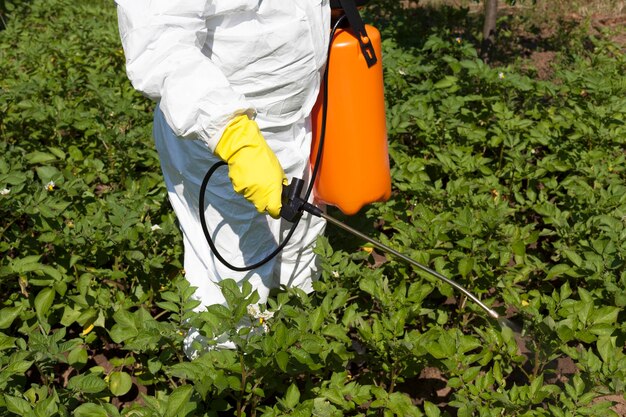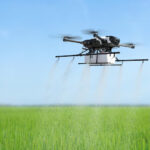As South African farmers increasingly embrace sustainable farming practices, organic pest control has become a crucial aspect of managing crops without relying on harmful chemicals. Organic pest control methods are not only safer for the environment but also promote biodiversity, soil health, and the long-term viability of farming operations. Here are some essential tips for South African farmers looking to implement organic pest control strategies:
1. Know Your Pests and Beneficial Insects
The first step in effective organic pest control is understanding which pests are affecting your crops and which beneficial insects can help control them. Familiarize yourself with common pests in your region, such as aphids, weevils, and caterpillars, as well as natural predators like ladybugs, spiders, and predatory beetles. This knowledge allows you to target specific pests without harming helpful insects.
2. Practice Crop Rotation
Crop rotation is one of the most effective ways to prevent pest infestations. By changing the crops you grow in a particular area each season, you disrupt the life cycle of pests that target specific plants. For instance, rotating crops such as maize with legumes can help reduce the build-up of soil-borne pests like rootworms. This practice also improves soil fertility and reduces the risk of disease.
3. Use Companion Planting
Companion planting involves growing certain plants together to naturally repel pests and boost plant health. For example, planting marigolds with tomatoes can help deter nematodes and other soil pests. In addition, herbs like basil, garlic, and mint can repel a variety of insects, including aphids and mosquitoes. This method reduces the need for chemical pesticides and enhances biodiversity on your farm.
4. Implement Biological Control
Biological control involves introducing or encouraging natural predators of pests. Beneficial insects such as ladybugs, lacewings, and parasitoid wasps can help control common pests like aphids and caterpillars. You can also introduce nematodes that target soil pests, or use predatory beetles to control beetles and weevils. Always ensure that the species you introduce are native to your area to maintain ecological balance.
5. Apply Neem Oil and Other Plant-Based Pesticides
Neem oil is an excellent organic pesticide that targets a wide range of pests without harming beneficial insects. Derived from the neem tree, this oil disrupts the reproductive cycle of pests, preventing them from maturing or reproducing. It’s safe for use on most crops and can be applied as a foliar spray. Other natural pesticides made from plants, like pyrethrin (from chrysanthemums) and insecticidal soap (from plant oils), can also be used effectively.
6. Hand-Picking and Trapping
In smaller gardens or when pests are concentrated in certain areas, hand-picking can be an effective and labor-intensive approach. Farmers can inspect crops regularly and manually remove pests such as caterpillars, snails, and beetles. Trapping is also a good option—beer traps can be used for slugs, while sticky traps capture flying insects like whiteflies and aphids.
7. Mulch and Organic Matter
Mulching is an effective strategy for controlling pests while enhancing soil health. Organic mulches such as straw, grass clippings, or wood chips create a barrier that prevents weeds and reduces the surface area for pests to hide. Mulch also attracts beneficial insects like earthworms and predatory beetles, which can help manage pests naturally. Additionally, mulch retains soil moisture and reduces water stress on plants, making them more resilient to pest attacks.
8. Use Row Covers and Netting
Physical barriers like row covers and insect netting can protect crops from pests such as cabbage worms, flea beetles, and aphids. These covers are lightweight and breathable, allowing sunlight and rain to reach the plants while keeping pests at bay. Row covers are particularly useful for protecting young seedlings or tender crops in the early stages of growth.
9. Encourage Biodiversity
A diverse farm environment is key to natural pest control. Growing a variety of crops and incorporating flowering plants that attract beneficial insects can help maintain a healthy balance. Encourage wildlife by providing habitats like birdhouses, hedgerows, or insect hotels. These measures promote the presence of natural predators and pollinators, which can reduce the need for artificial pest control.
10. Regular Monitoring and Early Intervention
Regular monitoring is essential for spotting pest problems early. Inspect your crops at least once a week for signs of damage or pest activity. Early intervention is key to controlling infestations before they get out of hand. If you notice a pest problem, act immediately by applying organic solutions like neem oil, or introducing predators, to prevent widespread damage.
Organic pest control methods offer South African farmers a sustainable and effective approach to managing pests while protecting the environment, human health, and biodiversity. By incorporating practices such as crop rotation, companion planting, and biological control, farmers can minimize the need for chemical pesticides and create a healthier, more resilient farming system. Regular monitoring, early intervention, and a commitment to biodiversity will help ensure long-term success in organic pest management.







